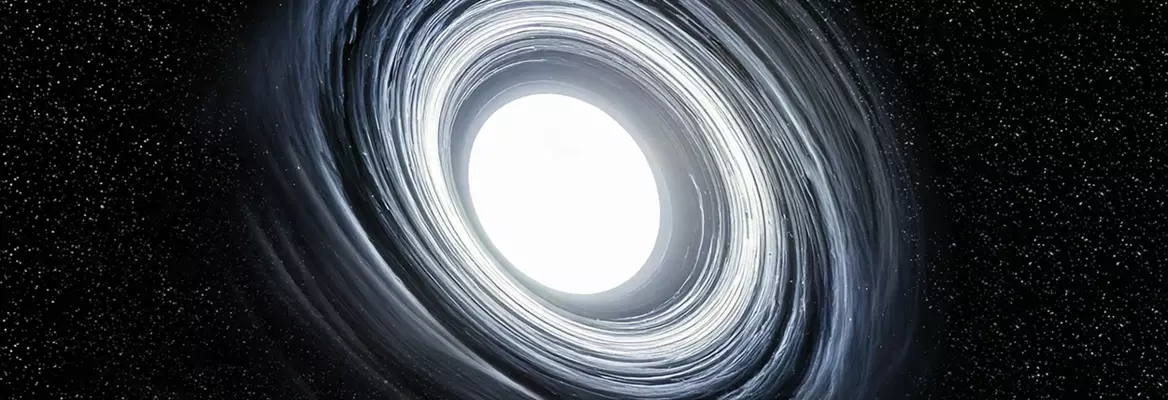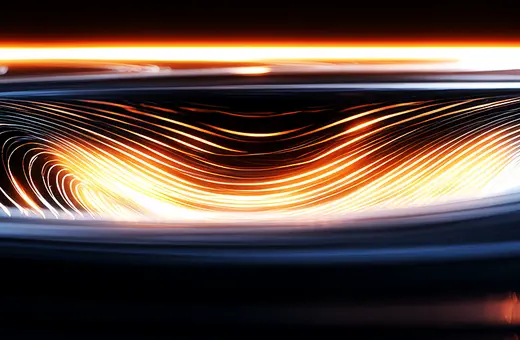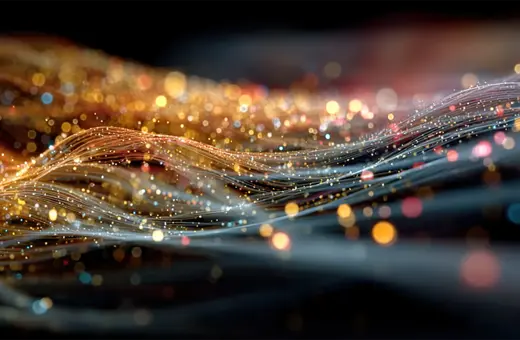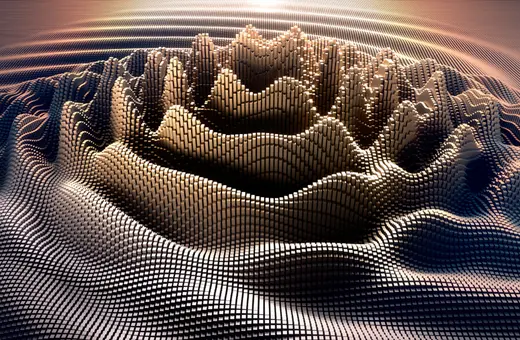Once considered pure speculation, black holes are now a well-established scientific entity. In this IAI interview, Carlo Rovelli makes the case that white holes—though still theoretical—warrant serious attention. White holes are the hypothetical opposites of black holes; instead of pulling matter in, they expel it out and cannot be entered. Rovelli explains how quantum mechanics suggests that black holes could eventually transform into white holes through a process called quantum tunnelling, challenging our understanding of space, time, and gravity.
In this IAI Live interview, theoretical physicist and author Carlo Rovelli discusses the idea of the possible existence of white holes. While black holes have been observed, their supposed counterparts remain a topic of scientific debate.
Rovelli explains why white holes warrant serious consideration even though their existence is not confirmed. Drawing from general relativity and quantum mechanics, he describes how black holes might transition into white holes through a quantum tunnelling process, which challenges our understanding of space, time, and the limits of scientific knowledge.
Charlie Barnett: Welcome to this IAI Live Interview Carlo, a pleasure to have you back. I want to ask you first about your defence of white holes’ existence. In your latest book on them you suggest their existence is doubtful, so why do you think we should take them seriously?
Carlo Rovelli: Well, one good reason is that the existence of black holes was very doubtful. I remember my experience. I was at university in the '70s, and the textbook I studied said pretty explicitly that most likely these mathematical fantasy, and didn't exist. So, I think it's good scientific practice to study possibility, and I do think there are hints that they might exist. So, I tend to believe they exist at least two or three days per week.
CB: You weave in the idea of Dante's Inferno to explain the boundaries of human understanding. Could you explain why you use this analogy and why it's applicable to white holes?
CR: White holes, if they exist, are not just a result of general relativity but require quantum mechanics to address key objections. If they form, they likely originate from black holes, which have a finite lifespan. One possibility is that a black hole transitions into a white hole through quantum tunnelling.
___
General relativity guides us partway, but quantum mechanics enables the final leap from black to white holes.
___
I've described this in my book as a journey—falling into a black hole, passing through a quantum tunnelling event, and emerging from a white hole. It parallels Dante’s trip through Inferno, where his guide, Virgil, leaves him halfway. Similarly, general relativity guides us partway, but quantum mechanics enables the final leap from black to white holes.
CB: Could you explain how this quantum event happens? How does a black hole make a quantum jump into a white hole? It seems amazing and perhaps the trickiest part to understand.
CR: Actually, the trickiest part was ensuring that everything aligns with known physics where quantum effects are negligible. The key challenge lies in addressing objections from general relativity and thermodynamics, particularly the stability of white holes.
The transition itself is straightforward: it’s a quantum tunnelling process, where a system jumps between two classical states that general relativity alone wouldn’t allow. This is a common phenomenon in quantum mechanics, like an electron jumping between energy levels. In this case, quantum gravity—modelled through loop quantum gravity—lets us calculate the probability of such a jump.






















Join the conversation